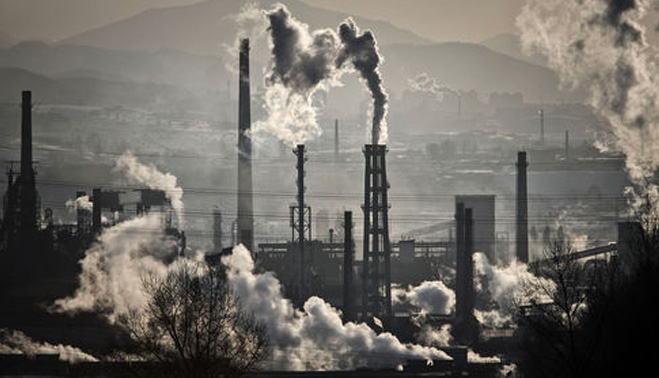![]() Home > World Business
Home > World Business
The $571 Billion Debt Wall That Points to More Defaults in China

![]() May 4th, 2016 | 09:04 AM |
May 4th, 2016 | 09:04 AM | ![]() 1551 views
1551 views
CHINA
Chinese debt investors are turning bearish at just the wrong time for the nation’s corporate borrowers, which face a record 3.7 trillion yuan ($571 billion) of local bond maturities through year-end.
With this year’s biggest note payments concentrated in some of the country’s most-cash strapped industries, China needs buoyant bond markets to help its companies refinance. Instead, yields in April rose at the fastest pace in more than a year and issuance tumbled 43 percent as borrowers canceled 143 billion yuan of planned debt sales.
Deteriorating investor sentiment has heightened the risk of defaults in a market that’s already seen at least seven companies renege on obligations this year, matching the total for all of 2015. While government-run banks may step in to help weaker borrowers, missed debt payments by three state-owned firms in the past three months suggest policy makers are becoming more tolerant of defaults as the economy slows.
“The biggest risk to the onshore bond market is refinancing risk,” said Qiu Xinhong, a Shenzhen-based money manager at First State Cinda Fund Management Co., which oversees 11 billion yuan. “With such a big amount of bonds maturing, if Chinese issuers can’t sell new bonds to repay the old, more will default.”
Repayment pressures are most extreme in China’s “old economy” industries, the biggest losers from the nation’s slowdown. Listed metals and mining companies, which generated enough operating profit to cover just half of their interest expenses in 2015, face principal payments of 389 billion yuan through year-end. Power generation firms owe 332 billion yuan, while maturities at coal companies have swelled to 292 billion yuan.
Deadline Watch
SDIC Xinji Energy Co., a state-owned coal producer that canceled a bond sale on March 11, must repay 1 billion yuan of notes on May 15, according to Bloomberg-compiled data. China International Capital Corp. highlighted the company as one of the riskiest onshore bond issuers in the second quarter. Fei Dai, SDIC’s board secretary, said Tuesday that the firm will arrange bank loans and other measures to avoid a default.
Evergreen Holding Group, whose repayment risk was also flagged by CICC, has 400 million yuan of bonds maturing on May 15. There’s “great uncertainty” over whether the shipbuilder can pay on time, according to Shanghai Brilliance Credit Rating & Investors Service Co., which cut its rating on the bonds to BBB from AA- in March. Two calls to Evergreen Holding Group’s general line went unanswered.
“If you have a large number of companies in high-risk sectors that lose access to financing, there will be defaults or restructuring,” said Raja Mukherji, the Hong Kong-based head of Asian credit research at Pacific Investment Management Co., which oversees about $1.5 trillion worldwide.
While corporate borrowing costs in China jumped last month, they’re still low relative to history. Chinabond’s index of seven-year company debt with top ratings has a yield of 3.88 percent, versus a five-year average of about 5 percent.
Banks could also offer an alternative source of financing. SDIC Xinji is turning to lenders to help cover its bond payment this month, while the government of Ningbo, where Evergreen is based, asked regulators and commercial banks to support the shipbuilder in December.
Still, policy makers seem to be pulling back from widespread rescue efforts as they seek to curb overcapacity in old economy industries. The government is likely to focus its resources on “too-big-to-fail” companies while reducing support for the rest of China Inc., according to Xia Le, the chief economist for Asia at Banco Bilbao Vizcaya Argentaria SA in Hong Kong.
"There are huge implications for China’s economy if companies can’t refinance their debt in the bond market and, at the same time, banks choose safe companies to lend to,” Xia said. “We will see more smaller companies fail."
Source:
courtesy of BLOOMBERG
by Bloomberg News
If you have any stories or news that you would like to share with the global online community, please feel free to share it with us by contacting us directly at [email protected]